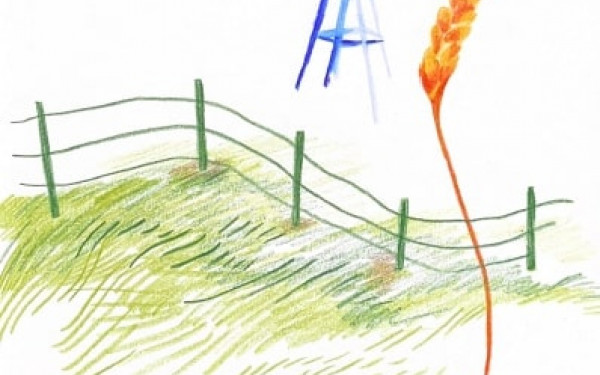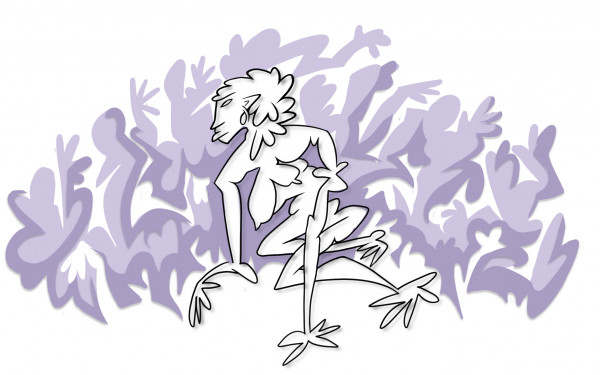Mundanity, Mystery, and Magic in Japanese Literature
Argo Bookshop’s Literary Workshop Offers Taste of Japanese Culture
Floating cherry blossom petals. Snow-peaked mountains. Glitzy, futuristic cities. Samurai.
These are a few of the images often invoked by people talking about Japan, that faraway land that exists somewhere between mystery and myth in the Western imagination. Keen Japanophiles might attribute the popularity of some of these representations to manga, the Japanese graphic novel and one of the nation’s biggest cultural exports. In other literary circles, Murasaki Shikibu, Kazuo Ishiguro and Haruki Murakami may be some of the names that resound with more familiarity. Yet, even as Japanese aesthetics are recognizably trendy in Hollywood, much of the country’s literature remains locked away, unknown and inaccessible to Western hobbyists and academics alike.
Cultural initiatives such as the Argo Bookshop’s annual Japanese literature event may help demystify some of this experience. Held on Oct. 20, the workshop curriculum spanned from the dawn of imperial court poetry, haikus, prose and theatre trends across centuries, all the way to beloved mainstream Japanese authors, offering a promising glimpse into a literary tradition that is historically rich but often overlooked by Western audiences for its linguistic and thematic complexities.
Moti Lieberman, the event’s host and passionate Japanese literature expert, pointed to the distinct narrative structure of Japanese stories as a possible reason for this divide.
“We have a Japan book club, and people are often dissatisfied with the endings because they don’t wrap up the way they expect,” he said. A returned expat who is fluent in the language, he believes many readers are used to a Western-Christian storytelling tradition, which ordinarily favours resolute conclusions. “Western books will have somebody have an epiphany, and then maybe the good guys are saved. Japanese storytelling doesn’t have that. Stories can end in an abrupt way and are more open-ended.”
Unusual structure and an emphasis on aesthetics, minute details and play-by-play pacing in some novels frustrates new readers, said Lieberman. “It’s something you have to develop a taste for.”
A lack of available translators also means that Western audiences only get a small selection of texts published in a language they can read, he explained. And it is typically only those that have won literary prizes or sold well. According to him, this skews the perception of Japanese literature for many people, who will conceive it as being exclusively high-minded and focused on abstracts.
Although abstract ideals are indeed present in classical books, "there is also a lot of science fiction, mysteries and romances. All of that stuff exists in Japanese literature too," he said. Manga and light novels are widespread across genres, and can be a first gateway into learning about Japanese customs.
Lieberman added that the simple kanji characters and annotations in those works are a valuable resource for language learners. “The media is just different [from literary pieces]. Giving the people that opportunity to engage is important if they are curious.” And hopefully that curiosity, once piqued, will lead them to the book aisle down the line.
Aidan Olley, a recent Asian Studies and History graduate from the University of British Columbia, counts himself as one such person. Attending the workshop at Argo was an opportunity to learn something new about a country he hopes to work in, he said.
“Literature has been a blind spot in my studies about Japan,” said Olley. “I’ve read a few authors for class—we did The Tale of Genji and some poetry from Matsuo Basho, but I want to see what [else] I’ve been missing.”
Olley credits the discovery of manga in his adolescence in part for his growing curiosity about Japan. One of his favourite works, Mushishi, is a supernatural medieval adventure set across a range of locations across the country, he said. The vivid locales, complex imagery and art style from the critically acclaimed work left a deep impression on him.
Speakers from the Japan Exchange and Teaching programme in Canada participated in the workshop, encouraging audacious attendees to embark on an adventure working abroad. The JET initiative, funded by the Japanese government to promote cultural ties between the country and other nations, offers college graduates the opportunity to teach English in Japan while immersing themselves in the language and culture.
Steve Busby, a former participant and ambassador of JET, says his experience living in Japan enriched his perspective of the world. “It's fascinating in every way, and yet there are so many things I cannot relate to, as someone who's male and from Canada,” he said.
He added that the country and its cultural heritage offers much to those willing to scrape past the surface. “It [feels] cliché, but I think Japan is like an iceberg. From our limited perspective here, we can only experience the very tip of something that is so deep and vast and beautiful.”
For those looking for a taste of something sublime, the Argo recommends Makioka Sisters, Snow Country or Sputnik Sweetheart as excellent introductions to the world of Japanese wordcraft.







